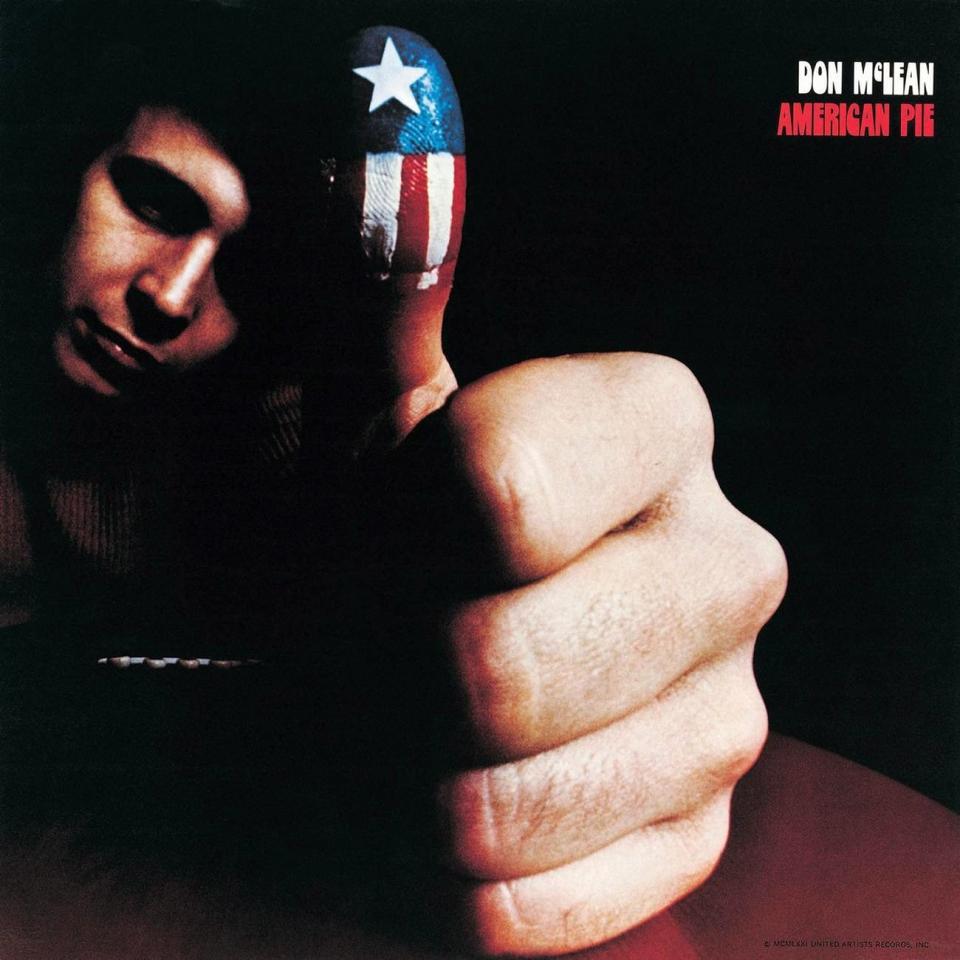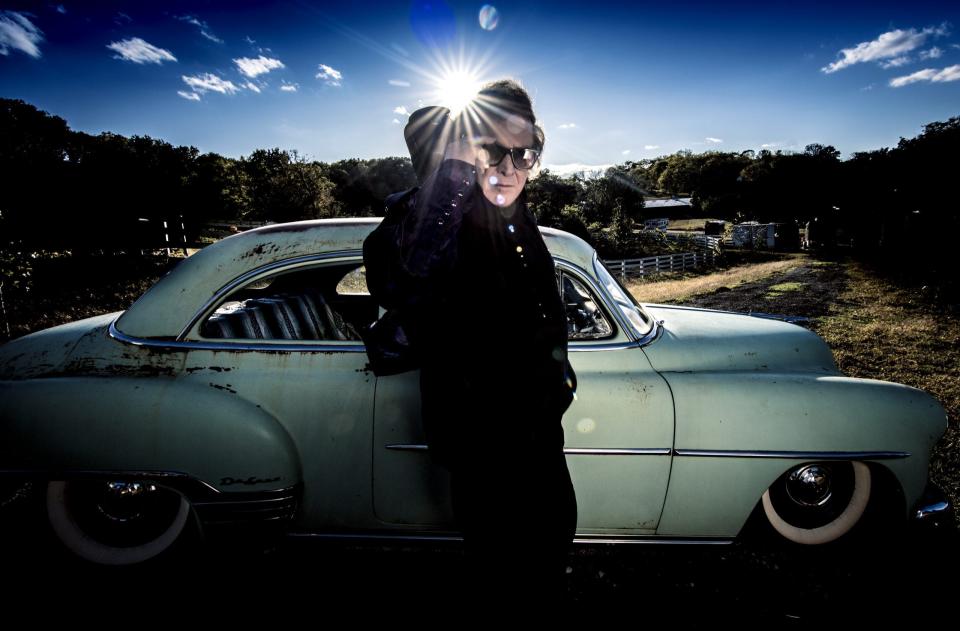Decoding the real meaning of 'American Pie': How Don McLean wrote his iconic song
- Oops!Something went wrong.Please try again later.
- Oops!Something went wrong.Please try again later.
- Oops!Something went wrong.Please try again later.
In 1969, an aspiring singer-songwriter landed a spot in the annual Newport Folk Festival, where a conversation with rock 'n' roll legends the Everly Brothers changed his life in ways he never could've dreamed.
As Don McLean recalls, "The Everlys were there. And they had always been my favorite group. Or one of them."
McLean approached Phil Everly.
"I said, 'I know that you knew Buddy Holly.' And like a kid — I was just a kid — I said, 'What happened? Can you tell me what happened?' I wanted to know more than just, 'He got on the plane.'"
'It was like a Vegas venue': How Mr. Lucky's and its joker sign became Arizona icons
Buddy Holly and the day the music died
Everly shared what he had come to understand of the events that happened 10 years earlier, when Holly, Ritchie Valens and J.P. "The Big Bopper" Richardson were killed in a plane crash after playing the Surf Ballroom in Clear Lake, Iowa, as part of the Winter Dance Party Tour.
This is before we started thinking of the date that plane went down — Feb. 3, 1959 — as "the day the music died."
Don't miss out! Your guide to all the biggest concerts playing metro Phoenix in July
At that point, McLean hadn't written those words in "American Pie," the nearly nine-minute epic whose 50th anniversary he's celebrating on a tour that makes its way to the Orpheum Theatre on July 9.
Getting back to 1969 at Newport, though, what Phil Everly told him was that Holly took the plane because he had to do his laundry.
'John Lennon got it': Micky Dolenz on the Monkees' proper place in music history
How Phil Everly blew Don McLean's mind
"That blew my mind right there," McLean recalls.
"It brought everything cascading back. Everything had been sort of etched in stone. The photographs, the notes on the back of the record covers, had all been static for all those years. And now suddenly, there was this movement. I thought, 'What?!'"
As Everly told the story, Holly even took some other people's dirty laundry on the plane.

"He was gonna have five or six hours when he got there and be able to get the laundry done," McLean says. "And he'd have to sing that night. But he would have been in the bus all day if he hadn't taken the plane."
That conversation brought the whole thing flooding back for McLean, who was a 13-year-old paperboy when Holly died.
The fact that he and Everly were talking 10 years after Holly's death is why the lyrics say, "For 10 years, we've been on our own."
Rod Stewart playlist: His 20 best songs, from ‘Maggie May’ to ‘Hot Legs’
The quintessential American rock 'n' roll epic
It was all the inspiration the songwriter needed to fire his imagination.
"I was casting around for the quintessential American rock 'n' roll epic I wanted to write," McLean recalls.
"And I had the beginning of it now. I wrote that first part from 'A long, long time ago' right until 'the day the music died' in one go. I just wrote it as I sang. It came out of my mouth just like that. And I just had to figure out where to take it from there."
The part about how "February made me shiver with every paper I'd deliver/ Bad news on the doorstep/ I couldn't take one more step?"
That's all drawn from his memories of the day he learned of Holly's death while folding newspapers one winter day in New Rochelle, New York.
"I could have gone 100 different ways with this," he says. "I could have made it a slow song. I didn't want any more slow songs. I wanted a rock 'n' roll song."
He also wanted a song about the intersection between politics and music, how they influence each other.
"That was basically the concept and I did it," he says. "The song came to me in about an hour. Or an hour and a half, whatever."
The story of 'My Way.' Paul Anka traces the song from dinner with Sinatra to Putin
The real meaning of 'American Pie'
To McLean, the words are poetry, beyond analysis. Which also leaves them open to interpretation.
"I don't reference anybody in there other than James Dean by name," he says.
Is "While the King was looking down, the jester stole his thorny crown" a reference to Elvis Presley and Bob Dylan, as some have suggested?
"As I've told people, you're gonna call Elvis the King?," he says.
"The King in my song has a thorny crown. And only Jesus had a thorny crown. I think I was very clear about that. There's a lot of reasons why I don't turn this into a board game. Because it's not. It's an impressionistic piece."
'It was a perfect creative machine': An oral history of Alice Cooper's 'Killer'
How music and politics shape each other
It's more about the history of politics and music than the individual characters who shaped that history.
"I want people to know about what's happened with where the music has gone," McLean explains.
"And I want them to know it influenced the politics. The same group of people that elected Kennedy produced Dylan. It's just my theory. It seems to have worked, though. Each year, I think, 'Damn, it's still working, isn't it?' Right up through Trump. I mean, today's music is perfect for Trump. Empty. Loud."
"American Pie" was released in October 1971 and spent four weeks at No. 1 on Billboard's Hot 100, from the week that ended Jan. 15 through the week that marked the 13th anniversary of "the day the music died."
It was McLean's first charting single, soon followed by "Vincent," a tribute to Vincent Van Gogh that peaked at No. 12 the same year.
'They're living stories for me': Rickie Lee Jones on how growing up in Phoenix shaped her
When Donnie McLean became a star
"That's when you become a star of some sort," McLean says.
"Maybe a shooting star or maybe a real star, but you're in that realm. And in my opinion, you go from being, like, a normal human to being some other kind of animal — like a cow or a duck or something. You're not really a person anymore. Everything changes."

He recalls attending a family event with his mother after "American Pie" became a massive pop hit.
"It was at one of those big halls they have in a hotel," he says.
"I came with my mom and we sat at a table. There were easily 200 people. A lot of them, I didn't know. So I stayed with my mom for an hour or so. I ate some food. And then I said, Well, 'Mom, I gotta go.' I had some things I had to do."
So he got up to leave.
"And the entire room gets up and follows me," he recalls, with a laugh.
"All pretense of me being just Donnie McLean was over, you know? Everybody wanted my autograph."
'End of an era': How an art bar that holds 50 people came to mean so much to Phoenix
'I do not recommend fame'
And that extended well beyond his relatives.
"People that had no use for me now were crawling all over me," he says.
"I had to write a legal letter to one guy who kept bothering me. He'd turned his back on me in college when I had to come back after losing a year. I had to tell this guy, 'Look, (expletive) off, man. I don't want to talk to you.'"
These are the downsides, he says, of succeeding in an industry where success leads to magazine covers, red carpets and envy.
"I do not recommend fame," he says.

"I think money is great. If you want to learn how to be a good investor and build your wealth, that's a terrific thing to do. But fame is a means in my business to getting people to come and see you. It all goes together. But it's ugly."
Still, he says, he's thankful for the long career he's had and glad to be back on the road celebrating the 50th anniversary of his greatest hit, although the fact that it's been 50 years makes it sound "like a marble statue or something" to McLean.
He also seems quite pleased to be the subject of a documentary hitting theaters July 14, "The Day the Music Died: The Story of Don McLean’s 'American Pie.'''
"I think folks who like that song — and there are plenty of people that really hate that song — are gonna enjoy it," he says.
"I told my manager, 'We should print up some I Hate American Pie buttons because that's what the Colonel did with Elvis.' He wanted both sides. I Hate Elvis. I Love Elvis. I Hate American Pie. I Love American Pie."
And with that, McLean let out a hearty laugh.
'Funky Broadway': How 1 night at a Phoenix Elks Club changed the history of funk
Don McLean: 50th Anniversary of American Pie
When: 7:30 p.m. Saturday, July 9.
Where: Orpheum Theatre, 203 W. Adams St., Phoenix.
Admission: $17.71-$123.
Details: 800-282-4842, etix.com.
Reach the reporter at ed.masley@arizonarepublic.com or 602-444-4495. Follow him on Twitter @EdMasley.
Support local journalism. Subscribe to azcentral.com today.
This article originally appeared on Arizona Republic: Don McLean on the real meaning of 'American Pie'

